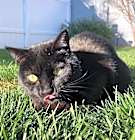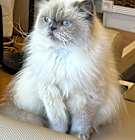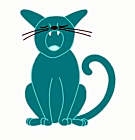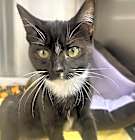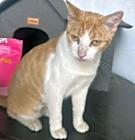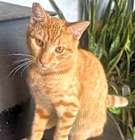Most Munchkins weigh between five to nine pounds and stand around seven to eight inches tall. Males tend to be larger than females, and their height and weight can vary depending on the individual cat, genetics, and specific lineage.

$350 in savings for new adopters
PetSmart is offering new adopters a free adoption kit. Just show your adoption paperwork in-store to redeem!
PetSmart is offering new adopters a free adoption kit. Just show your adoption paperwork in-store to redeem!
Shop Now

Shop Now






